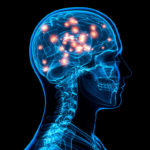Among older adults, migraine headaches may be associated with an increased risk for neurological diseases, like dementia, according to a new study published in the International Journal of Geriatric Psychiatry.
Researchers at the University of Waterloo in Ontario, Canada analyzed 679 participants over the age of 65, who at baseline were cognitively intact, based on a cohort study from the Manitoba Study of Health and Aging.
As part of the study, researchers looked at the migraine history of the participants and assessed any cognitive outcomes after five years. Other factors, such as age, gender, education, mental and physical health, and lifetime history of migraines, were also assessed.
Based on the results, researchers identified a significant association between a history of migraines and dementia, including Alzheimer’s disease, a neurodegenerative disease with no known cure.
Moreover, the study also examined any considerable connection between migraines and vascular dementia (VaD) but found no association. “Evidence did not support an association between migraines and VaD,” co-authors of the study detail in the findings.
“Implications for clinical practice include earlier screening for cognitive decline in migraine sufferers, as well as more aggressive treatment of potential intervening variables to delay dementia, improve quality of life, and increase the likelihood of healthy aging.”
“Identifying a link to migraines provides us with a rationale to guide new strategies to prevent Alzheimer’s disease,” said Suzanne L. Tyas, one of the co-authors of the study. “We don’t yet have any way to cure Alzheimer’s disease, so prevention is key.”


